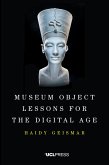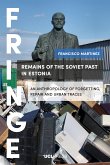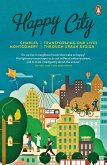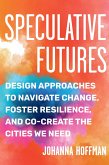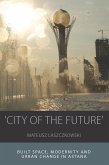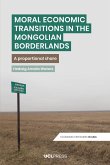What can the generative processes of dynamic ownership reveal about how the urban is experienced, understood and made in Ulaanbaatar, Mongolia? Shaping Urban Futures in Mongolia provides an ethnography of actions, strategies and techniques that form part of how residents precede and underwrite the owning of real estate property - including apartments and land - in a rapidly changing city. In doing so, it charts the types of visions of the future and perceptions of the urban form that are emerging within Ulaanbaatar following a period of investment, urban growth and subsequent economic fluctuation in Mongolia's extractive economy since the late 2000s.
Following the way that people discuss the ethics of urban change, emerging urban political subjectivities and the seeking of 'quality', Plueckhahn explores how conceptualisations of growth, multiplication, and the portioning of wholes influence residents' interactions with Ulaanbaatar's urban landscape. Shaping Urban Futures in Mongolia combines a study of changing postsocialist forms of ownership with a study of the lived experience of recent investment-fuelled urban growth within the Asia region. Examining ownership in Mongolia's capital reveals how residents attempt to understand and make visible the hidden intricacies of this changing landscape.
Praise for Shaping Urban Futures in Mongolia
'The added value of this publication is inclusion analysis of the local world of ideas into the most up-to-date urbanization processes in a city-state. Above all, however, it presents a broader view of economic and administrative processes than spent recently and greatly received by anthropologists, Rebecca's Empson studies or Tomasz Rakowski.'
Sprawy Miedzynarodowe
'Overall this is an excellent and admirably compact study of urban property. It will be an especially useful book for students of Inner Asia's ongoing and messy urbanization. I hope as well that it will find an audience outside of its area studies confines, as the travails of people in Ulaanbaatar seeking to turn the financialization of the city to some sort of private advantage says much about the contemporary city writ large.'
Eurasian Geography and Economics
'As an ethnography of fast-paced uncertain changes, Plueckhahn's book is dextrously researched and artfully conceptualized.'
Journal of the Royal Anthropological Society (JRAI)
Following the way that people discuss the ethics of urban change, emerging urban political subjectivities and the seeking of 'quality', Plueckhahn explores how conceptualisations of growth, multiplication, and the portioning of wholes influence residents' interactions with Ulaanbaatar's urban landscape. Shaping Urban Futures in Mongolia combines a study of changing postsocialist forms of ownership with a study of the lived experience of recent investment-fuelled urban growth within the Asia region. Examining ownership in Mongolia's capital reveals how residents attempt to understand and make visible the hidden intricacies of this changing landscape.
Praise for Shaping Urban Futures in Mongolia
'The added value of this publication is inclusion analysis of the local world of ideas into the most up-to-date urbanization processes in a city-state. Above all, however, it presents a broader view of economic and administrative processes than spent recently and greatly received by anthropologists, Rebecca's Empson studies or Tomasz Rakowski.'
Sprawy Miedzynarodowe
'Overall this is an excellent and admirably compact study of urban property. It will be an especially useful book for students of Inner Asia's ongoing and messy urbanization. I hope as well that it will find an audience outside of its area studies confines, as the travails of people in Ulaanbaatar seeking to turn the financialization of the city to some sort of private advantage says much about the contemporary city writ large.'
Eurasian Geography and Economics
'As an ethnography of fast-paced uncertain changes, Plueckhahn's book is dextrously researched and artfully conceptualized.'
Journal of the Royal Anthropological Society (JRAI)
Dieser Download kann aus rechtlichen Gründen nur mit Rechnungsadresse in A, D ausgeliefert werden.



